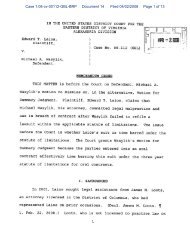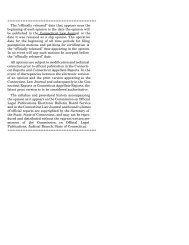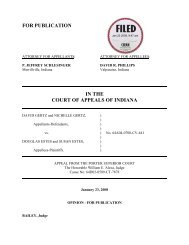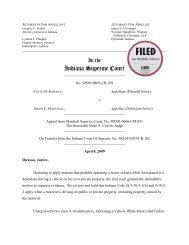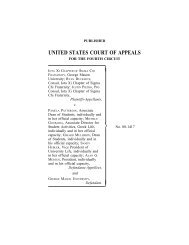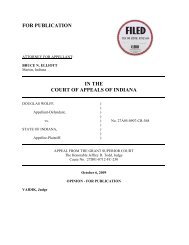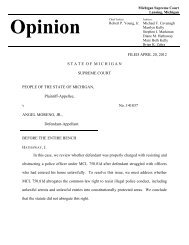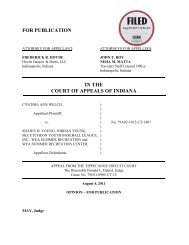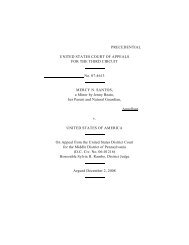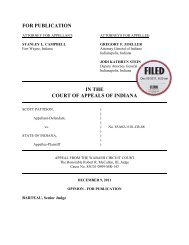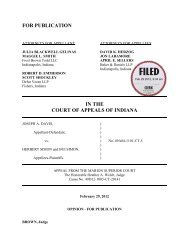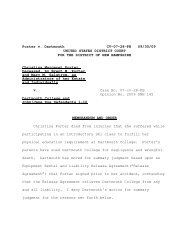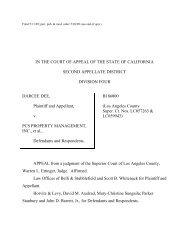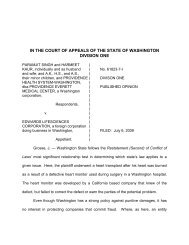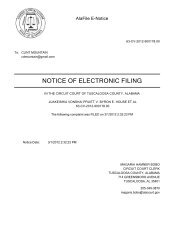not for publication without the approval of the - Lawyers USA Online
not for publication without the approval of the - Lawyers USA Online
not for publication without the approval of the - Lawyers USA Online
You also want an ePaper? Increase the reach of your titles
YUMPU automatically turns print PDFs into web optimized ePapers that Google loves.
Liberty Surplus Ins. Corp. v. Nowell Amoroso, P.A., 189 N.J.<br />
436, 445-46 (2007). We must "consider whe<strong>the</strong>r <strong>the</strong> competent<br />
evidential materials presented, when viewed in <strong>the</strong> light most<br />
favorable to <strong>the</strong> non-moving party, are sufficient to permit a<br />
rational factfinder to resolve <strong>the</strong> alleged disputed issue in<br />
favor <strong>of</strong> <strong>the</strong> non-moving party." Brill, supra, 142 N.J. at 540.<br />
However, in <strong>the</strong> context <strong>of</strong> a claim <strong>for</strong> intentional infliction <strong>of</strong><br />
emotional distress, "[t]he severity <strong>of</strong> <strong>the</strong> emotional distress<br />
raises questions <strong>of</strong> both law and fact. Thus, <strong>the</strong> court decides<br />
whe<strong>the</strong>r as a matter <strong>of</strong> law such emotional distress can be found,<br />
and <strong>the</strong> jury decides whe<strong>the</strong>r it has in fact been proved."<br />
Buckley, supra, 111 N.J. at 367.<br />
Here, <strong>for</strong> purposes <strong>of</strong> summary judgment, defendants do <strong>not</strong><br />
contest <strong>the</strong> third and fourth elements <strong>of</strong> <strong>the</strong> cause <strong>of</strong> action <strong>for</strong><br />
intentional infliction <strong>of</strong> emotional distress. Their contention<br />
is that plaintiff can<strong>not</strong> as a matter <strong>of</strong> law prove <strong>the</strong> first or<br />
second elements on this record: that defendants acted<br />
intentionally or recklessly, and that DeStefanis's conduct was<br />
extreme and outrageous. We agree with defendants' contentions.<br />
Plaintiff must prove that defendants' conduct was "so<br />
outrageous in character, and so extreme in degree, as to go<br />
beyond all possible bounds <strong>of</strong> decency, and to be regarded as<br />
atrocious, and utterly intolerable in a civilized community."<br />
8<br />
A-2216-10T2



